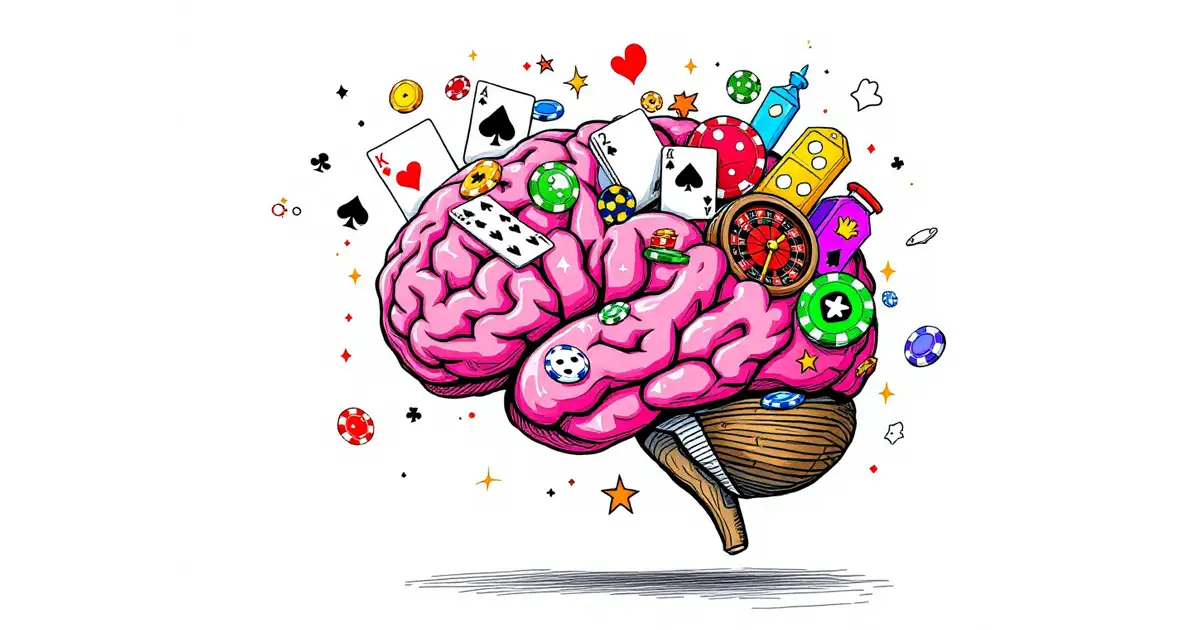Unveiling the mysteries of gamblers’ brains
The world of gambling has long intrigued scientists and health professionals. In Lyon, researchers have set out to explore the brain mechanisms of gamblers in depth. They aim to understand what happens in their brains when they engage in these activities.
Gambling activates the brain’s reward system
Games of chance and gambling intensely stimulate the brain’s reward system. The thrill of potential winnings, anticipation, and excitement are all elements that activate this system. However, this stimulation can also lead to addictive behaviors, making it essential to understand the underlying neurological processes.
Research objectives: understanding to improve prevention
Researchers at the Centre de Recherche en Neurosciences in Lyon aim to identify the brain regions activated during gambling.
Using advanced imaging techniques, they hope to distinguish the mechanisms at play in casual gamblers compared to pathological gamblers. This distinction is crucial for developing targeted prevention and treatment strategies.
Guillaume Sescousse, a researcher at Inserm and deputy director of the Centre de Recherche en Neurosciences de Lyon, explains:
“Our study involves observing what happens in the brains of people while they play, using functional Magnetic Resonance Imaging (fMRI), as well as in ‘real life’ by tracking participants over several weeks via their smartphones.”
The researchers strive to identify potential brain differences based on gamblers’ profiles. Indeed, there is great diversity among gamblers: some play as a response to negative emotions, while others do so in response to positive emotions. Additionally, the brain mechanisms involved in poker players may differ from those at play in slot machine enthusiasts.
One of the most widely accepted hypotheses suggests that individuals who develop an addiction have a lower density of certain dopamine receptors, called D2 receptors. This results in a diminished brain response to rewards. To compensate for this deficit, these individuals are naturally drawn to activities that generate intense rewards, leading to significant dopamine surges.
Implications for society and public health
The findings of these studies could have major implications for public health policies. A better understanding of the brain mechanisms involved in gambling could lead to more effective awareness campaigns and targeted support programs for at-risk individuals.
The complexity of the brain mechanisms associated with gambling requires a multidisciplinary approach. Neuroscientists, psychologists, sociologists, and policymakers must collaborate to develop comprehensive solutions that combine prevention, regulation, and support for affected individuals.
The work of these French researchers paves the way for a better understanding of the interactions between the brain and gambling. These scientific advances could transform prevention and treatment approaches, ensuring a safer and more informed gambling experience for everyone.


